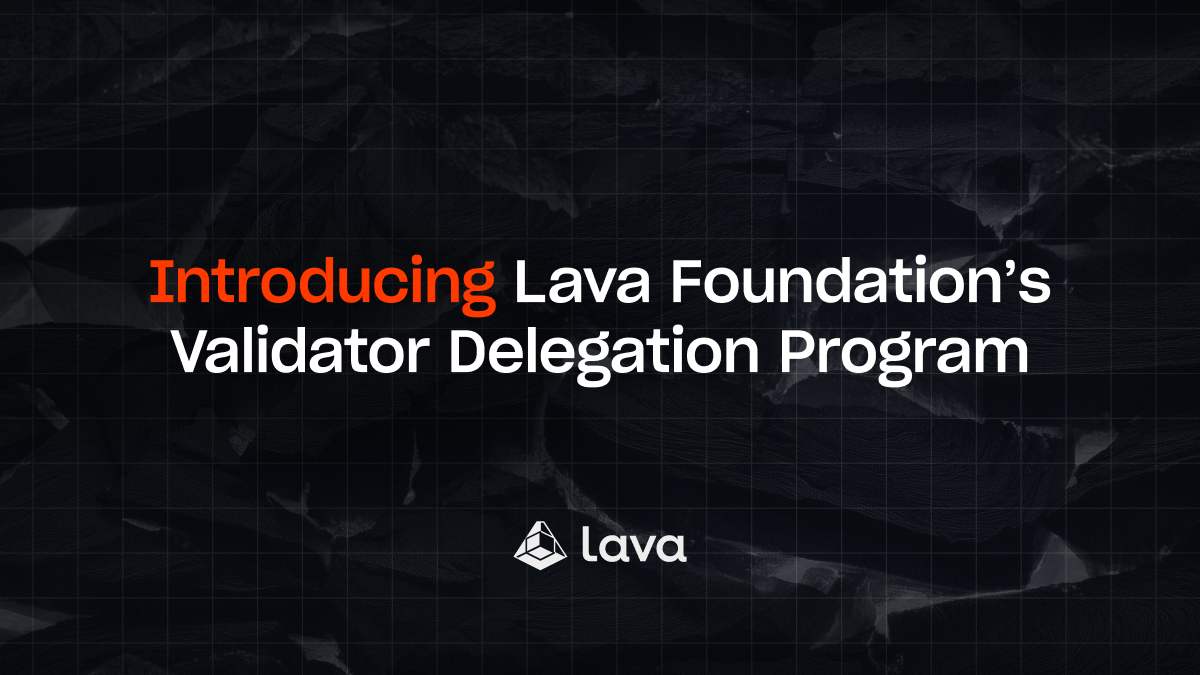Share this post

Introducing the Validator Delegation Program: Advancing Decentralization and Transparency
Lava Foundation is introducing a new validator delegation program as part of its continued effort to decentralize and strengthen the validator ecosystem. This update builds upon Lava’s commitment to transparency and securing operational excellence across the whole network.
This is the first proposal for a program meant to evolve.
Strengthening the Network Through an Optimized Delegation Model
Lava’s validator delegation program combines performance-based and contribution-based delegation. In the performance-based track stake is distributed based on measurable validator performance, tying delegations to measurable quality of service (QoS) metrics, such as uptime and block signing. Data gathering and performance tracking will occur in real time via Staking Partner Polli, ensuring timely and accurate measurement across the validator set.
The contribution-based track focuses on essential infrastructure contributors that uphold network reliability and governance continuity. Together, these complementary systems strengthen Lava’s overall security, efficiency, and decentralization. They also help validators remain profitable and sustainable, supporting stable operations even through periods of market volatility.
A Dual-Structured Program for Performance and Contribution
The 2025 Validator Program introduces a transparent two-tier system. The distribution plan, as well as the total amount of delegation, is subject to change.
- Performance-Based Delegation (120M LAVA):
Delegations will be assigned dynamically to the top 25 validators based on live performance data tracked by Polli. Metrics primarily include uptime and slashing events, but future iterations of the program will include more metrics like governance participation and block production compliance. Delegations will be reshuffled in real time to ensure real-time alignment with validator performance. Live rankings and methodology publicly available via Polli. to further foster transparency. - Contribution-Based Delegation (47.75M LAVA):
Reserved for essential infrastructure contributors and ecosystem partners, including explorers, dashboards, and relayers. Selection is based on proven contributions to network reliability, security, and active participation in continuous governance.
Together, these programs balance fair and open competition based on validator node performance.
Reinforcing Lava Network Decentralization and Transparency
Compared to 2024, the Lava Foundation’s stake share will drop from 43.68% to 40%, further strengthening decentralization and community-led governance. By adopting a performance-based delegation system, the network becomes more decentralized and resilient. Live performance tracking through Polli ensures transparency, while data-driven delegation reinforces fairness and objectivity across all active validators.
This new structure reflects Lava’s broader vision: a self-sustaining, performance-oriented validator ecosystem where rewards are earned through efficiency, reliability, and meaningful contribution.




